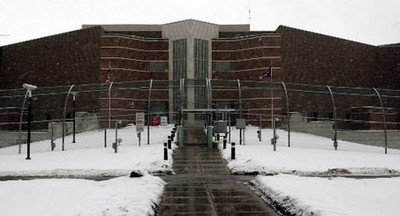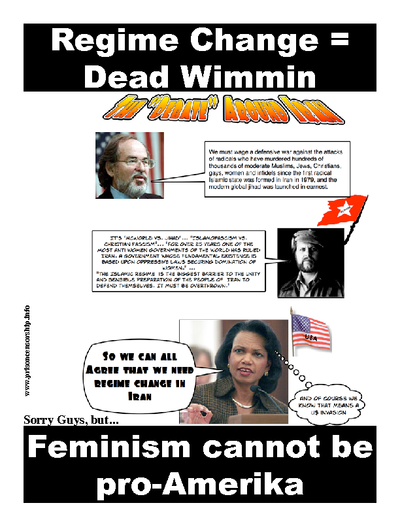In ULK 25 you printed an article of mine about
prisoner
struggles in the Youth Training School (YTS) in Chino, California.
I’d like to comment on your response.
The main points in your response criticize our efforts to better our own
conditions. And that’s MIM(Prisons)’s common ideology as I’ve noticed
from the material of yours I’ve read. MIM(Prisons) is quick to condemn
and downplay rebellious actions as premature, saying the rebels ain’t
“ready” and lack unity of the masses to obtain success. But I don’t
believe that’s always the proper analysis of the rebellions you speak
against. Ultimate victory is obtained through action, by taking
chances. Is it proper revolutionary conduct to sit on the sidelines and
cheerlead, even in the midst of war? That makes me think of the Muslim
Brotherhood. They failed to participate in the revolt that happened in
Egypt, but they were quick to celebrate the victory, they were quick to
want to enforce their ideologies in the new government. True
revolutionaries must, at some point, get their hands dirty.
To constantly speak against taking action, for lack of proper political
education (or for whatever reasons), is to tell Rosa Parks she should’ve
just moved to the back of the bus. It’s the same as telling indigenous
peoples they’re ignorant for fighting back against the oppressors to
preserve their way of life, or to tell the rebel fighters in the African
and Arab countries to lay down their arms because MIM(Prisons) doesn’t
feel those citizens are ready. But as we’ve seen, many oppressive
governments have been toppled successfully.
When Fidel and Raul Castro, Che, etc, invaded Cuba they did it with only
82 men. But they only had 22 left after the first ambush. They lacked
the loyalty of the masses, took a chance, and succeeded!
In the situation at YTS I admit we were young and lacked the proper
political education, and as I’ve said, I now see all our energy
should’ve been focused on the system itself. But our technique was a
success according to our young, uneducated ideologies at the time. Our
goal wasn’t to try to change the whole California Youth Authority system
itself, but to reform YTS, to make our living conditions better, to get
things back that had been taken from us. The power was in our hands, the
hands of the people. Administration clearly saw that and eventually
relented to our demands. The administration’s intent was to pacify us,
but in my article I never said anything about being pacified. The “few
bones” thrown to us did nothing to calm us down. And in the process we
learned something of value: we learned an art of war against the system,
and how to organize, even if you do choose to call it focoism.
Experience in war, even if that battle is lost (ours wasn’t), is
intrinsically valuable for the preparations of future battles against
the oppressors. “Talk,” verbal education, can only go so far. Experience
is the ultimate teacher. And it’s my experience at YTS that has now made
me hungry for revolutionary education. I now study politics and try to
get my priorities in order to help clean up the hypocrisy of the
injustice system. I doubt I’m the only one that’s been motivated as a
result of my experiences. So wouldn’t you call that a victory?!
Any patriot whose ever lost a battle will tell you he’s learned
something of more value than just how to shed blood.
MIM(Prisons) responds: We appreciate this writer’s commitment to
struggle with us over this issue after reading our response to h article
in Under Lock & Key. This is a good example of
Unity-Struggle-Unity. We must fearlessly tackle our ideological
disagreements and questions while working together for change. Theories
can only truly be tested in practice, and so in this way we agree that
experience is the ultimate teacher.
This is a debate over the lessons of experience, not one of “talk”
vs. experience as this prisoner represents. The article we printed
talked about the YTS Chino prisoners who engaged in “race riots” where
nations fought nations because they were being punished already for
violence. The prisoncrats eventually saw the wisdom of resolving the
situation by improving conditions rather than increasing repression.
Certainly all of the youth involved in these struggles learned some
valuable lessons. Most important is the lesson about the arbitrary
nature of punishment meted out by the criminal injustice system. But we
look to the practice of prisoners across the country and see that
violence among prisoners generally leads to more violence and repression
by the prison pigs, not the administration giving in to demands.
If we really want to learn from practice we must look at more than just
one situation and draw scientific conclusions from history. It is likely
that more than one individual prayed for change to the conditions in YTS
Chino during this time, but we don’t conclude that praying to god
results in improvements in prisons just from this one experience.
Similarly we can’t take this one situation as evidence that violence
among the people will lead the oppressors to lessen oppression when this
is contradicted in the vast majority of prisons.
MIM(Prisons) does walk a line between supporting just struggles of the
oppressed wherever they break out, and drawing lessons from the
struggles while trying to push them to ever more advanced and successful
levels. While we struggle against focoism, we have a bigger problem of
inaction due to fear among the prison masses. So we recognize the
positive aspects of immature rebellions that serve as breeding grounds
for more advanced comrades and strategies. When these struggles present
just demands we will support them, but we should not blindly cheerlead
for every outbreak of rebellion.
The case of Cuba is a good historical example where we would defend
their just struggle against imperialist aggression while pointing out
that their revolution ended up dependent on Soviet imperialism and this
hindered their ability to develop socialism and advance further in the
interests of the Cuban people. This is a scientific analysis of history
that must be undertaken so that we can learn from successes and
failures. Many times in many countries people take up armed struggle
without Maoist leadership and people’s support. We resolutely support
these struggles when they oppose imperialism, but we don’t want to
mislead people by suggesting that this is the best path to follow for
other struggles.
This comrade’s development of political awareness out of his experience
at YTS Chino is a victory for the oppressed. But to sum up that history
overall as a victory would imply that random violence among the
oppressed wins victories from the oppressor. What makes it useful to
retell these histories is to say here’s what was righteous, and here’s
what was backwards or immature in our approach, to apply those lessons
to our future struggles and share them with those who find themselves in
similar situations today so that they can do better than we did.










